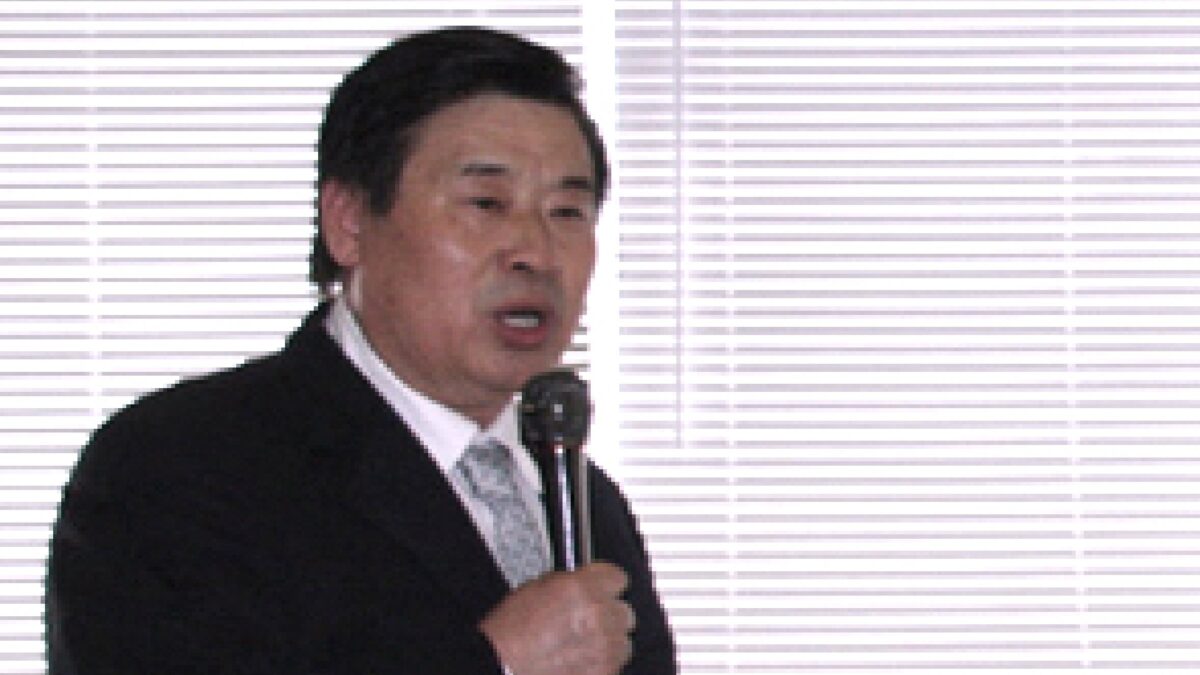
Wang Shujun in an undated photo. Wang, secretary-general of a Queens-based Chinese pro-democracy group, was arrested in New York City on March 16 on charges relating to acting as an agent for China. (The Epoch Times)
By
Five men have been charged with taking part in an alleged plot to spy on dissidents, human rights leaders, and pro-democracy activists in the United States on behalf of Chinese intelligence, according to the Department of Justice (DOJ).
Four Chinese intelligence agents now stand accused alongside Wang Shujun, a naturalized U.S. citizen who was charged in March for conspiring to feed information about his fellow New Yorkers to the Chinese Communist Party (CCP).
Wang helped to found and later served as secretary-general for the New York-based pro-democracy nonprofit Hu Yaobang and Zhao Ziyang Memorial Foundation, named after two former CCP reformist leaders.
Since at least 2011, however, Wang is alleged to have used his position and influence within the Chinese diaspora community to spy on dissidents and covertly feed their information back to Chinese intelligence so that it could be used in the CCP’s ongoing campaign of transnational repression. As of May 17, those handlers have also been charged by the DOJ with conspiracy to spy on and intimidate Chinese dissidents in the United States.
He Feng, Ji Jie, Li Ming, and Lu Keqing were charged for their alleged role in conducting espionage and transnational repression schemes in the United States and abroad on behalf of China’s Ministry of State Security (MSS), the regime’s top intelligence agency.
“We will not tolerate efforts by the PRC [People’s Republic of China] or any authoritarian government to export repressive measures to our country,” Assistant Attorney General Matthew Olsen said in a prepared statement.
“These charges demonstrate the Justice Department’s unwavering commitment to hold accountable all those who violate our laws in seeking to suppress dissenting voices within the United States and to prevent our residents from exercising their lawful rights.”
The indictment alleges that He, Ji, Li, and Lu acted as Wang’s handlers in the MSS, and directed him to target specific individuals and groups that the CCP deemed subversive.
These included Hong Kong pro-democracy activists, advocates for Taiwanese independence, and Uyghur and Tibetan activists. The four agents also directed Wang to obtain information on particular topics and matters of importance to the MSS, and to deliver the personal information of dissidents he met through the foundation, the court document stated.
According to the indictment, Wang communicated with and provided information to the MSS for years by using encrypted messaging applications and emails, as well as during face-to-face meetings in mainland China. He would then transfer telephone numbers and contact information belonging to Chinese dissidents to the MSS.
One of the people Wang informed about was Albert Ho, a Hong Kong-based politician and founder of the Hong Kong Alliance in Support of Patriotic Democratic Movements of China, an organization he established in 1989 to support the cause of protesting students. Ho was arrested in 2010 and is currently in jail serving several sentences connected with his participation in pro-democracy activities in Hong Kong.
“If anyone doubts how serious the Chinese government is about silencing its critics, this case should eliminate any uncertainty,” said FBI Acting Executive Assistant Director Alan Kohler.
“The Chinese government’s aggressive tactics were once confined to its borders. Now, the PRC is targeting people in the United States and around the world. The FBI and its partners remain committed to combating transnational repression.”
The charges underscore the immediacy of the CCP’s larger effort to silence critics of the regime in the United States and abroad.
Since March, the DOJ has announced a number of high-profile espionage cases, bringing to light the CCP’s transnational repression schemes including alleged plots to intimidate and possibly attack a U.S. Army veteran to prevent his running for Congress, and attempts to stalk and harass an American figure skater and her family.
The announcements also follow the controversial decision by the Biden administration to terminate the China Initiative, a Trump-era counter espionage program that critics accused of being racially motivated.
DOJ leaders said that an internal review found no evidence of racial bias in the program. Proponents of the China Initiative additionally said that it was difficult to avoid such a perception, as the CCP intentionally targets people of Chinese heritage living abroad to aid in illicit activity.
The saga of Wang and his alleged work in New York appear to be a vindication of that idea.
“As alleged, Wang acted as a covert intelligence asset in his own community, spying on and reporting sensitive information on prominent pro-democracy activists and organizations to his co-defendants, who are members of the Chinese government’s Ministry of State Security,” said U.S. Attorney Breon Peace.
“Today’s indictment exposes and disrupts an operation by the PRC that threatens the safety and freedom of Chinese nationals residing in the United States on account of their pro-democracy beliefs and speech. Our office and our law enforcement partners will remain vigilant to thwart foreign espionage activities aimed at our citizens and residents.”
Wang was arrested on March 16. He, Ji, Li, and Lu remain at large and are believed to be in mainland China.